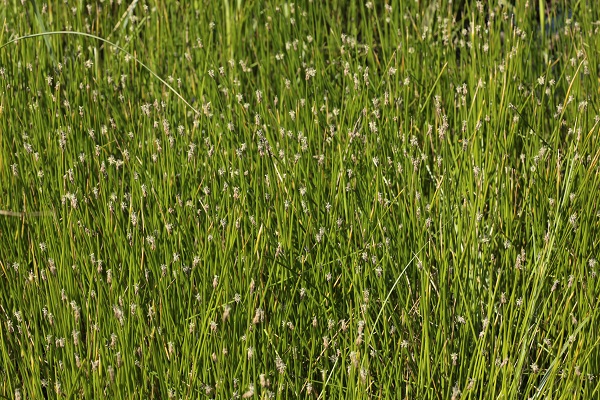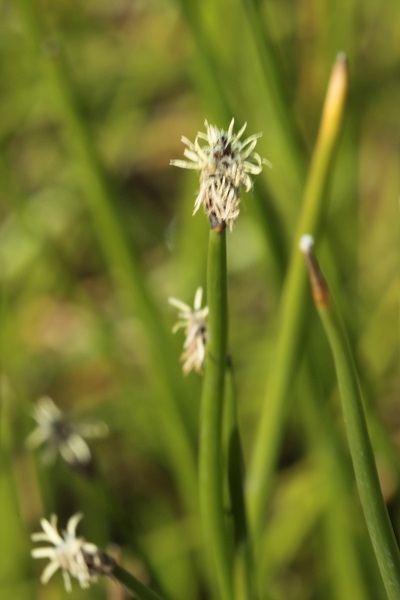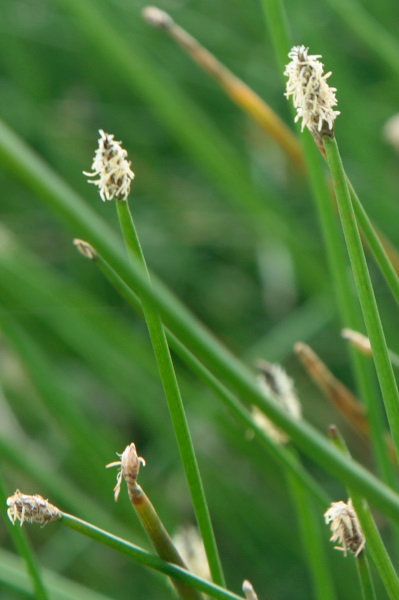Hebrew: בצעוני מצוי, Arabic: بربيت المستنقع
| Scientific name: | Eleocharis palustris (L.) Roem. & Schult. | |
| Synonym name: | Eleocharis macrostachya Britt, Eleocharis smallii Britt., Eleocharis xyridiformis Fern & Brack. | |
| Common name: | Common Spikerush, Creeping spike rush | |
| Hebrew name: | בצעוני מצוי | |
| العربية, Arabic name: | بربيت المستنقع (birbit almustanqaei) | |
| Nederlandse naam: | Gewone Waterbies | |
| Family: | Cyperaceae, Sedge Family, גמאיים |

|
| Life form: | Graminoid, helophyte | |
| Spinescence: | Absent | |
| Stems: | Round, upright, green stems | |
| Leaves: | Alternate, entire leaf, smooth margin; true leaves are bladeless reddish sheaths clustered at the base of each stem | |
| Inflorescence: | Solitary terminal spikelet of inconspicuous greenish-brown flowers. | |
| Flowers: | Insignificant, brown | |
| Fruits / pods: | Achenes, lens shaped, 1 to 2.5 mm long and 1 to 1.2 mm wide. | |
| Flowering Period: | March, April, May, June, July | |
| Habitat: | Humid habitats | |
| Distribution: | Mediterranean woodlands and shrublands, Mt. Hermon | |
| Chorotype: | Euro-Siberian - Med - Irano-Turanian | |
| Summer shedding: | Perennating |

Derivation of the botanical name: Eleocharis,Greek ἕλειος (heleios), dwelling in a marsh, and χάρις (charis), meaning "grace. palustris, Marsh-loving. The Hebrew word:בצעוני, kahvan from Arabic, أقحوان,'aqhawan, קחואן.


|